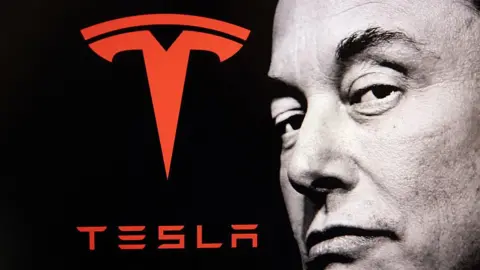In a recent development pertaining to the electric vehicle (EV) landscape, Indian Minister of Heavy Industries, H.D. Kumaraswamy, stated that Tesla, the electric vehicle company owned by Elon Musk, has no plans to manufacture vehicles in India. This remark was made on Monday, coinciding with the Indian government’s release of detailed guidelines aimed at promoting domestic EV manufacturing. The government’s initiative appears to have been unable to attract Tesla’s interest, despite its attempts to offer incentives in an effort to draw investment from the American automobile giant.
It marks a significant moment as this admission highlights the Indian government’s struggle to secure investments from Tesla, a company that previously expressed interest in entering the Indian market. Kumaraswamy’s comments were also coupled with the frustrating realization that even after announcing incentives designed to lure global EV manufacturers last March, India has yet to see Tesla’s commitment. While Kumaraswamy did confirm that Tesla will open two showrooms in the country, the lack of plans for manufacturing has been viewed as a setback for India’s ambitions in becoming a significant player in the global EV market.
The Indian minister went on to explain that while companies like Mercedes Benz, Skoda-Volkswagen, Hyundai, and Kia have exhibited interest and are actively considering local manufacturing options, there are no such expectations from Tesla. Adding to this, reports indicated that a Tesla representative participated in initial discussions regarding the manufacturing scheme but was notably absent in subsequent rounds of talks. This absence raises questions about Tesla’s intentions in India, especially amidst discussions involving the US government.
Notably, in February, former US President Donald Trump remarked that it would be “unfair” for the United States if Tesla established a factory in India, which could exert influence on the decision-making processes at Tesla. Historically, the company has gone through numerous negotiations regarding its entry into India. However, plans to establish a base in the country hit a roadblock in 2022 when the Indian government mandated that Tesla localize its production. Tesla had initially suggested the desire to import EVs to gauge market demand before committing to local manufacturing.
As recent as 2023, Elon Musk indicated that he was still evaluating the appropriate timing for entering the Indian market. In a meeting with Indian Prime Minister Narendra Modi in Washington, D.C., they touched upon the vast potential for technological and innovative collaboration between Tesla and India. This ongoing dialogue, however, has not translated into significant action in terms of manufacturing commitments.
The Indian government has taken steps to enhance the attractiveness of its EV market; tax reductions on imports for EVs have been enacted to encourage global manufacturers who pledge substantial investments in local production. Leading up to these discussions, Musk had expressed concerns about high import duties hindering Tesla’s ability to enter the India market.
However, industry analysts caution that the Indian EV market might not yet be sufficiently mature for Tesla’s entry. Current EV sales represent a mere fraction, less than 3%, of the overall passenger vehicle market in India. Furthermore, domestically made electric vehicles often come at a price point significantly lower than that of Tesla’s base model, complicating the company’s ability to compete effectively. Factors such as insufficient charging infrastructure and challenging local road conditions may also dissuade Tesla’s plans.
As of now, Tata Motors stands at the forefront of India’s EV market, maintaining over 60% of the share while MG Motors, which is a collaboration between Indian firm JSW and a Chinese company, follows with a 22% share. Globally, Tesla faces fierce competition, particularly from Chinese manufacturers such as BYD. Tesla’s sales saw a marked decline to record low levels in early 2025, further exacerbated by growing criticism of Musk stemming from his association with the Trump administration. Recently, Musk announced his decision to step away from his government-related roles, signaling potential shifts in strategy moving forward.
Ultimately, as Tesla reassesses entry into the Indian market, the road remains challenging, layered with local market dynamics and competition from both domestic producers and international challengers.



